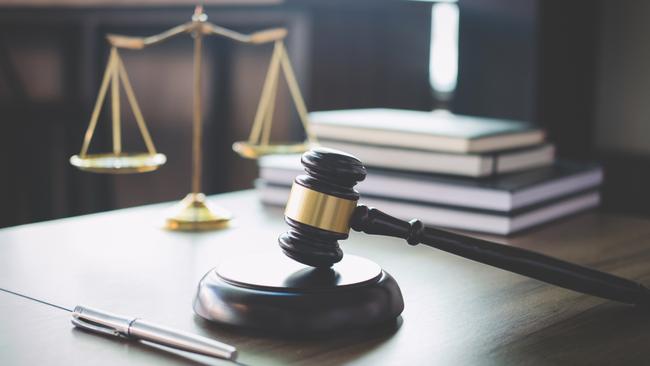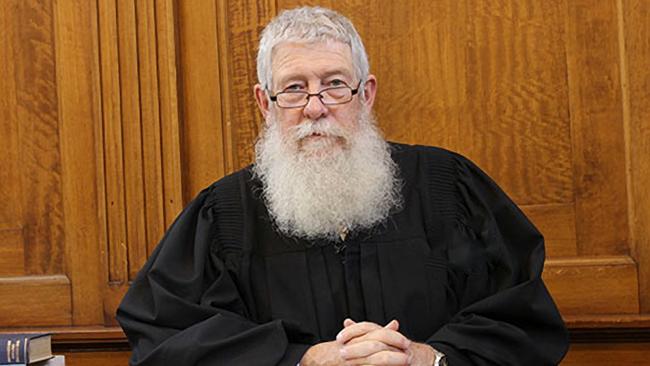
Male MPs wondered if female jurors should be referred to as “juresses”, and questioned whether only “sticky-beaks” would apply for service.
Some queried what would happen if female jurors were locked up with male jurors and forced to stay at court overnight, saying they were “perfectly certain” women in these circumstances couldn’t possibly keep their minds on the case at hand.
Former Queensland Supreme Court judge Roslyn Atkinson late last month drew on these examples when arguing that the absurdity of a jury system without female jurors is akin to one that lacks Indigenous jurors.
She argued that juries in Australia still remain “unrepresentative” of society, pointing to various cases where Aboriginal defendants were tried before an all-white panel.
She also said the reliance on random jury selection for achieving representative juries disadvantages Indigenous Australians, who are under-represented on the electoral roll and due to their over-representation in the criminal justice system are disproportionately disqualified or limited in their eligibility for service.
“If juries are meant to be members of the community who are peers of the defendant, then it is critical that First Nations people are also fairly represented on juries,” she said. “The legitimacy of our criminal justice system may be said to depend on it.”
She is not alone in her suggestion. Australia’s peak judicial body - the Australasian Institute of Judicial Administration - has commissioned various research papers to determine how to boost the number of Indigenous jurors.
One report said there was a “strong argument” for restructuring Australian jury representation to “affirmatively include First Nations jurors” and put forward three models to do so.
Eminent land rights barrister Tony McAvoy SC, in his foreword to the report, said there can be “no justification that permits a First Nations person in the Northern Territory to be tried before an all-white jury”.
Tell me what you think at ellie.dudley@news.com.au
Legal movements
Herbert Smith Freehills has announced Jay Prasad as a new partner in its Australian tax practice. Prasad will join the firm in October, having most recently worked for the Allens tax team where he advised on the tax aspects of high-profile public and private M&A transactions.
Maurice Blackburn medical negligence practice head Dimitra Dubrow will join the Victorian Coroners Court following the departure of Katherine Lorenz who has been appointed as a judicial registrar to the Victorian Supreme Court.
Goodbye, Mr Prowse
It’s been nearly a year since the NSW judicial watchdog announced it would probe rogue regional magistrate and Ipso Facto favourite Roger Prowse, after he labelled a defendant “lower than a snake’s duodenum”.
A quick recap: The Judicial Commission last year launched an investigation into Prowse after he told the Port Macquarie local court that if he had a choice of speaking with the defendant, Glenn Dirix, or “picking up dog excreta, I’d go for the dog excreta really because it’s less odious”.

However it now appears Prowse is going to avoid any Judicial Commission findings - good or bad. Why? Well, the veteran magistrate has tendered his resignation from the bench.
“The former judicial officer was requested by the Conduct Division to provide a response to the complaints,” a letter to Mr Dirix, obtained by Ipso Facto, reads.
“Before the former judicial officer provided his substantive response to the complaints, he wrote to the Governor on 12 August 2024, giving written notice of his resignation from the office of magistrate on 30 August 2024.”
Ipso Facto understands that Dirix’s complaint was one of four Prowse-related incidents the commission was examining which will now be turfed entirely.
While the details of the others are sketchy, NSW chief justice Andrew Bell panned Prowse for launching a “self-indulgent and disrespectful” attack on multiple superior judges, warning all low-level court officials to respect the judicial hierarchy.
Want this column (and more!) right in your inbox? Sign up for the Ipso Facto newsletter.






When parliamentary debate in the early 1900s turned to a woman’s right to serve on a jury, many raised concerns over whether there were appropriate sanitary facilities in courthouses.